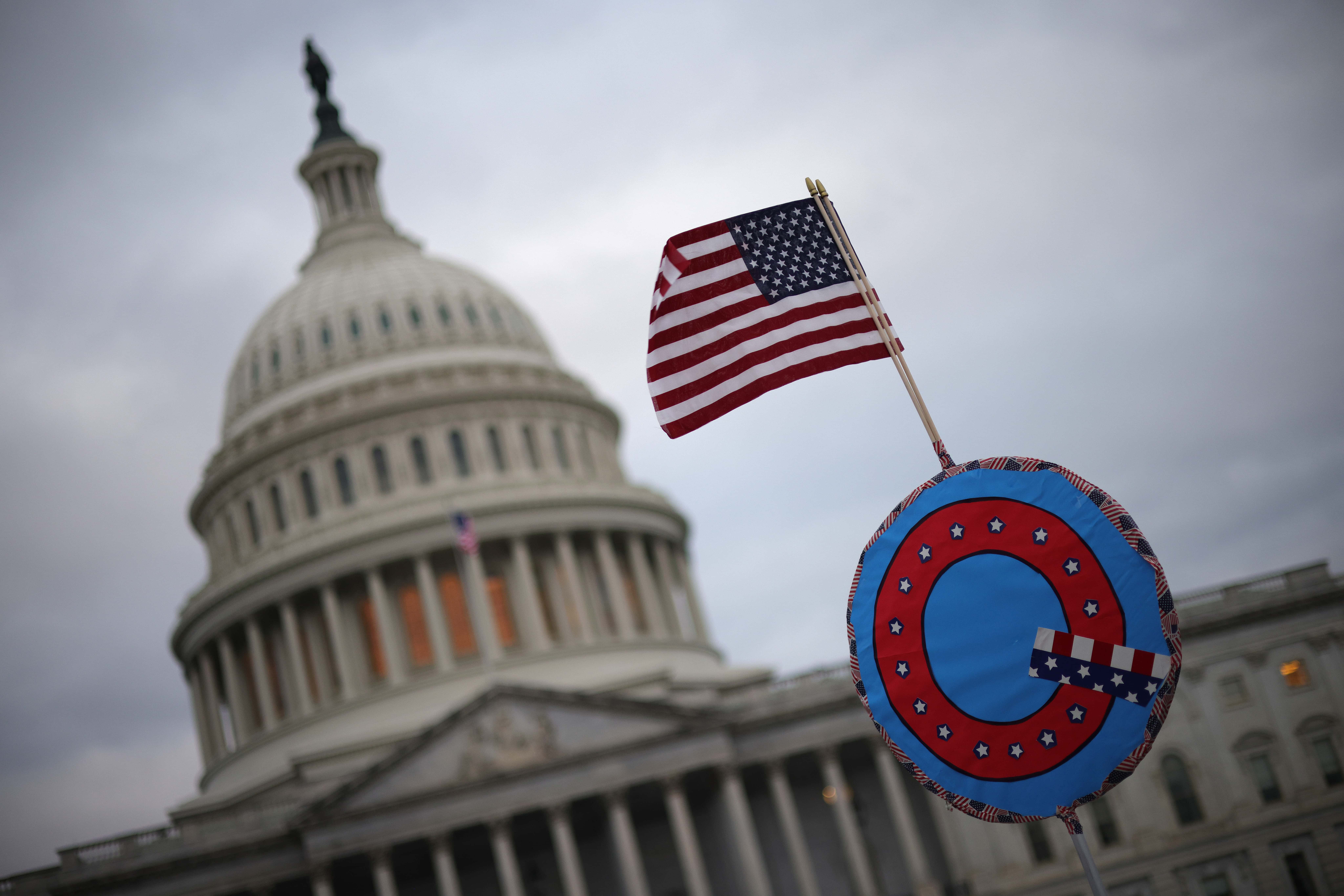Are QAnon followers mentally ill? 68% of them involved in Capitol riot have been clinically diagnosed, says study

Many who believe in QAnon, the notorious far-right conspiracy, may have mental illnesses. While QAnon followers believe in a lot of things, the central tenet of their complicated and ever-changing belief system is that national Democrats, aided by Hollywood and a group of so-called global elites, are running a ring devoted to the abduction, trafficking, torture, sexual abuse, and cannibalization of children -- rituals of their Satanic faith. And former President Donald Trump is the only person willing and able to mount an attack against them.
Sophia Moskalenko, a research fellow in social psychology, Georgia State University, during research for ‘Pastels and Pedophiles: Inside the Mind of QAnon’, a forthcoming book she co-authored with security scholar Mia Bloom, noticed that QAnon followers are “different from the radicals I usually study in one key way: They are far more likely to have serious mental illnesses.”
READ MORE
Who is Jim Watkins? 'QAnon' leader who owns 8chan used to run pornographic websites for money

As per court records of QAnon followers arrested in the wake of the January 6 Capitol insurrection, 68 percent reported that they had received mental health diagnoses. This was analyzed by Michael Jensen and Sheehan Kane for ‘Profiles of Individual Radicalization in the United States’, a research project “dedicated to improving the understanding of the human causes and consequences of terrorism”.
The conditions they revealed included post-traumatic stress disorder, bipolar disorder, paranoid schizophrenia, and Munchausen syndrome by proxy. The same research also found that 44 percent of the 31 QAnon followers who committed crimes before and after the Capitol riot were radicalized after experiencing a traumatic event. These experiences included the premature deaths of loved ones; physical, emotional, or sexual abuse; and post-traumatic stress disorder from military service.
Moskalenko noted, citing research, that “depressed, narcissistic, and emotionally detached people are also prone to have a conspiratorial mindset.” Similarly, “people who exhibit odd, eccentric, suspicious and paranoid behavior” were more likely to believe conspiracy theories.

“QAnon’s rise has coincided with an unfolding mental health crisis in the United States,” Moskalenko said. “Even before the COVID-19 pandemic, the number of diagnoses of mental illness was growing, with 1.5 million more people diagnosed in 2019 than in 2018. The isolation of the lockdowns, compounded by the anxiety related to COVID and the economic uncertainty, made a bad situation worse.”
She added, “In my view, the solution to this aspect of the QAnon problem is to address the mental health needs of all Americans -- including those whose problems manifest as QAnon beliefs. Many of them -- and many others who are not QAnon followers -- could clearly benefit from counseling and therapy.”
If you or someone you know is having suicidal thoughts, the toll-free National Suicide Prevention Lifeline at 1-800-273-TALK (8255) is available 24 hours a day, seven days a week. You can also speak with a trained crisis counselor 24/7 by texting HOME to 741741 to reach the Crisis Text Line.










